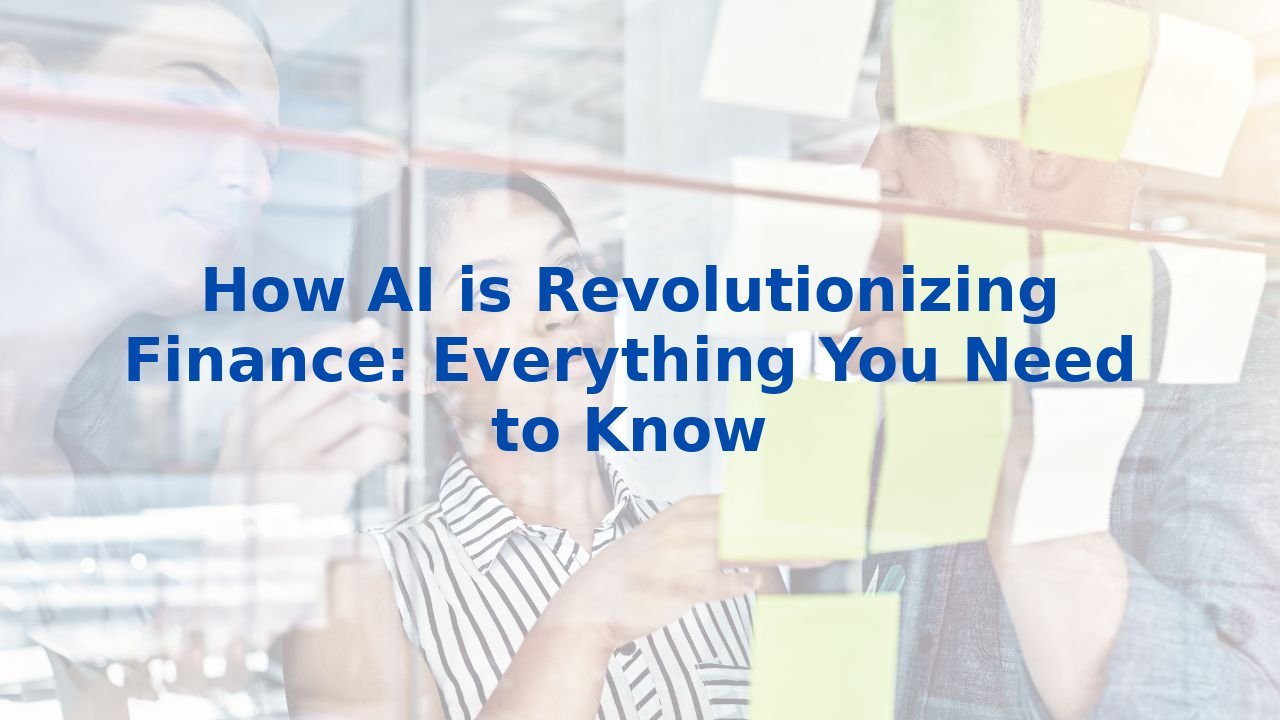How AI is Revolutionizing Finance: Everything You Need to Know
The Transformative Role of AI in Finance
Finance, an intricate tapestry woven with the threads of money management, investments, and assets, is an indispensable cornerstone for individuals, businesses, and governments. Its pervasive influence stretches from budgeting and saving to investing and risk management, permeating every aspect of our daily lives. As we delve deeper into this vast field, we see not just the traditional disciplines—such as banking, accounting, financial planning, and investment management—but also the evolving landscape shaped by technological advancements, particularly Artificial Intelligence.
Understanding the Essentials of Finance
At its core, finance encompasses a multitude of processes and practices that guide the flow of capital. It empowers individuals to make informed decisions, helping them achieve their financial aspirations and navigate the complexities of wealth management. For businesses, effective finance management is crucial for sustaining growth, optimizing resources, and maintaining a competitive edge. The same principle applies to governments that rely on efficient financial strategies to ensure fiscal stability and drive economic growth.
Key processes in finance, such as budgeting, forecasting, and cash flow management, hold immense significance. Each decision you make today influences your financial standing tomorrow—whether it’s determining how much to save, how to allocate investments, or assessing risks associated with financial decisions. That’s where intelligent solutions like AI come into play.
AI: The Catalyst for Efficiency and Innovation
The introduction of AI into the financial sector heralds a new era of efficiency and innovation. Imagine a world where tedious calculations and data analysis are transformed into automated, streamlined processes. With AI, financial institutions can now process vast amounts of data in mere moments, drastically reducing the time and effort involved in tasks like report generation or compliance checks.
“Automating complex processes not only saves time but also reduces human error, leading to more accurate financial assessments.”
One prominent area where AI shines is in data analytics. Financial professionals often struggle to derive actionable insights from overwhelming quantities of data. AI excels in sifting through this data, identifying patterns, and presenting insights that lead to informed decision-making. For example, predictive analytics can forecast market trends, enabling investors to make strategic decisions based on anticipated shifts in the market.
Enhancing Risk Management with AI
Risk management is a critical component of finance, mandated by the need to safeguard assets and investments. Here, AI can play a transformative role. Machine learning algorithms can analyze historical data to predict potential risks and identify new threats in real-time. This proactive approach allows businesses to mitigate risks before they escalate, fostering a more stable financial environment.
Moreover, AI enhances fraud detection by analyzing transaction patterns to flag suspicious activities. By employing advanced algorithms, financial institutions can alert investigators far earlier than a conventional system would manage, thereby protecting both the organization and its clients.
The Need for Employee Training in AI
The transition to an AI-driven environment necessitates a paradigm shift not just in tools but in the human resources that wield them. Training employees to operate alongside AI tools can foster a culture of adaptability and innovation. An investing in employee AI training ensures that your team can leverage the power of these technologies, enhancing their efficiency and expertise.
When employees understand AI’s capability, they can identify opportunities to integrate these technologies into their workflows—optimizing processes, enhancing customer service, and driving value creation. Upskilling your workforce can position your organization as a leader in innovation, allowing you to capitalize on AI advancements and stay ahead of the competition.
Conclusion
The landscape of the financial sector is evolving, and AI stands at the forefront of this transformation. From streamlining operations and elevating data analytics to bolstering risk management, the advantages of integrating AI into finance are clear. To harness these benefits, organizations must commit to employee training, fostering an environment where humans and machines work in harmony. Embrace the potential of AI, and watch how it can propel your financial practices to new heights.
For those seeking to dive deeper into the world of AI and its role in finance, consider exploring comprehensive training programs to equip your team with the necessary skills and knowledge. After all, the future of finance is not just digital—it's intelligently automated.



